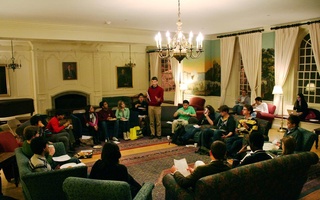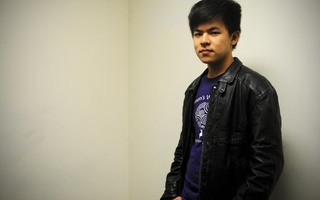The Harvard Trans Task Force (TTF) is circulating an online petition protesting the possible return of the Reserve Officers’ Training Corps before the military allows trans-identified and intersex individuals to openly serve in the military.
As of yesterday afternoon, 93 people had signed the petition launched Friday and circulated over a number of student e-mail lists.
ROTC is not recognized by the University because “Don’t Ask, Don’t Tell”—which bars gay, lesbian, and bisexual individuals from openly serving in the military—violates Harvard’s anti-discrimination policy.
“Don’t Ask, Don’t Tell” was repealed in November, but top ranking government officials must certify the decision before it takes effect.
While the University has said it would recognize ROTC following the repeal of “Don’t Ask, Don’t Tell,” trans-identified and intersex individuals are still not permitted to enlist, since the military considers gender identity disorder—the medical diagnosis describing the attributes of transgenderism—and intersexism to be medical disqualifications. Transgender describes individuals whose gender identity does not align with the sex assignment they were born with. Intersex refers to people who are born with a combination of male and female physical features.
So even with the repeal of “Don’t Ask, Don’t Tell,” gender-equality advocates consider the Pentagon’s restrictions on who may serve in the military to be discriminatory.
“Continuing to withhold official recognition of ROTC until the military allows Americans of any sex or gender identity to enlist would reaffirm Harvard’s commitment to equal opportunity and provide an incentive for the military to develop more inclusive policies,” TTF wrote in its petition.
Jia Hui Lee ’12, who is spearheading the TTF’s petition signing initiative, said that he hopes to get 1,000 signatures on the petition before submitting it to University President Drew G. Faust.
“[The petition] is not so much about not having ROTC on campus but only having programs on campus that are open to everyone regardless of their gender identity,” Lee said.
Former chair of TTF Eva B. Rosenberg ’10 said that she believes that the University stance is inconsistent as a result of “an oversight, rather than a result of any malicious intent.”
The University did not respond to requests for comment yesterday.
Rosenberg said that because the inclusion of gender-identity in the anti-discrimination policy is relatively recent, “the University hasn’t really figured out what it means to face up to issues relating to gender-identity discrimination.”
“We are very hungry for the administration to recognize the existence of trans people on campus and the struggles they face,” she said. “It may be easier and faster to favor the rights of gay and lesbian people over trans, but I think it is ethically insupportable.”
Other members of the Harvard community said that they feel that the recognition of ROTC should not be contingent upon the military’s policy regarding trans and intersex individuals.
Nathaniel G. Butler ’68, a Navy veteran and board member of the Harvard Gay and Lesbian Caucus, was an advocate for the repeal of Don’t Ask, Don’t Tell. While he said that he would like to see trans-identified and intersex individuals granted the ability to serve, Butler said that their exclusion should not be a barrier for ROTC’s return to Harvard.
Read more in News
Hasty Pudding Roasts Jay LenoRecommended Articles
-
Queer Student Groups Seek UnityThe Harvard College Queer Students and Allies and the Transgender Task Force have long struggled to clarify their respective roles ...
-
 Harvard Political Union Debates ROTC
Harvard Political Union Debates ROTC -
Filmmaker Traces Evolution of ‘Intersex’The Women’s Center handed the microphone at an event Friday to documentary filmmaker Robin Honan and intersex historian Elizabeth Reis to vocalize the crossroads of medical and social thought on intersex bodies.
-
 Tolerance at Harvard: Students Lag Behind Administration
Tolerance at Harvard: Students Lag Behind Administration













